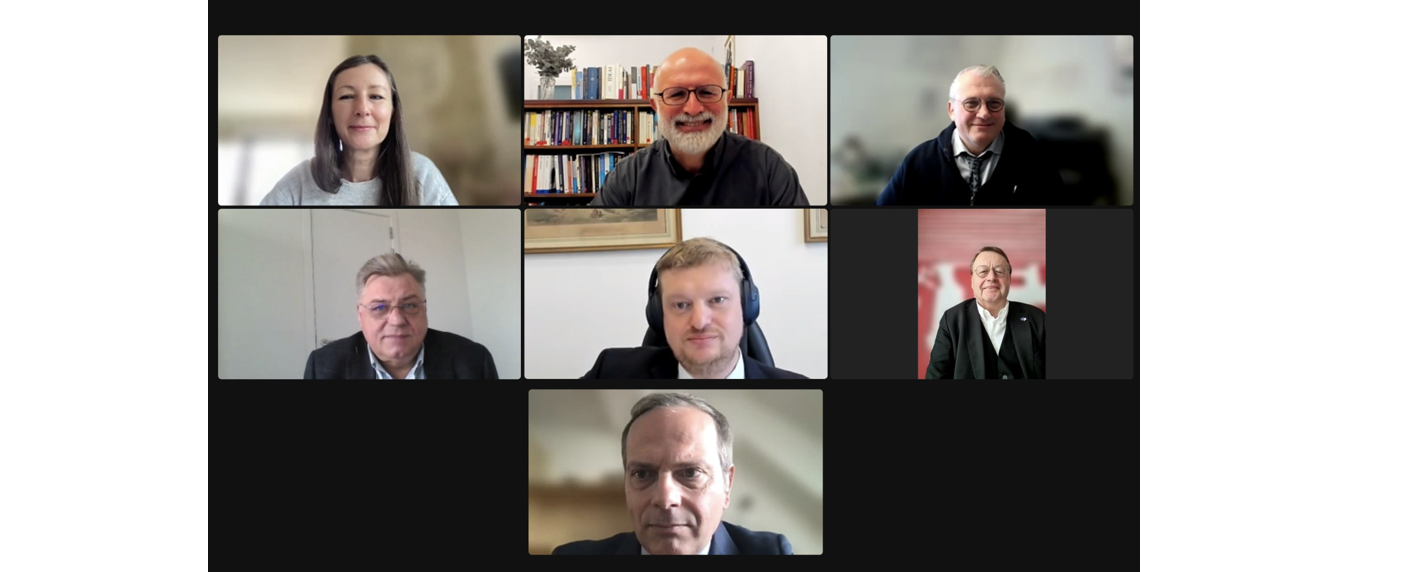Future of Family Business
in Times of Crisis

On Thursday, March 9th, SME Connect together with Kosma ZLOTOWSKI MEP, hosted a webcast on „Future of Family Business in Times of Crisis“ to discuss the future course and importance of family businesses as well as how to overcome the times of crisis. As family businesses are forming more than 60% of all European companies, family firms are essential contribution to the economy. They keep up the time-proof stability and enrich local communities, holding multiple work positions and offering job security.
The webinar was moderated by SME Connect Chair of the Steering Committee, Dr. Horst HEITZ, and the panel was comprised of Kosma ZLOTOWSKI MEP, TRAN, PETI, DEPA Committees; Dr Paul RÜBIG, President of SME Connect; Dr Alberto GIMENO, Associate Professor at Department of Strategy and General Management of ESADE Business School; Katarzyna GIERCZAK-GRUPINSKA, Founder and CEO at Fundacja Firmy Rodzinne and Early Warning Europe Mentor Academy; Michael JÄGER, Vice-President of German Taxpayers and Secretary General of Taxpayers Association of Europe; and Dr Vincenzo BASSI, President at FAFCE – Federation of Catholic Family Associations in Europe.
Dr Paul RÜBIG opened the debate addressing the success stories of SMEs and importance of family businesses. He pointed out that dual education, starting with preschoolers already, sets the base to make it possible to scale up the family businesses. „It should be a free decision of family business either to grow, to make export or be self-employed as young generation often prefers,“ said Rübig. He expressed the concern regarding bureaucracy that sometimes even leads to bankcrupsies as fulfilling the huge amount of legislation can be burdensome, an example handing the business over from one generation to another can take up to several years to complete.
Kosma ZLOTOWSKI stressed out that family businesses that often belong to SME sector, play a crucial role in the EU economy, but are also important part of the society. the world is changing dynamically in many areas, especially through digitization of all economic processes. Unfortunately, the EU is far behind in this race. This shows very well that family businesses need special attention and support from EU institutions. Zlotowski pointed out that information campaigns and effective initiatives on how to get resource from pertinent EU funds are needed in order to help smaller businesses. He clearly stated: „Family business is an excellent platform for rebuilding the potential of European industry, services or trade. It is also a way to strengthen the image of the family and an important part of our culture and value system.“
Dr Alberto GIMENO pointed out that the whole concept of organizations is in crisis. Companies are thinking that their role in society is maximizing their profit, but nowaday’s society is asking for more implication in the environment which should then escalate in developing the idea of corporate social responsibility. Gimeno remarks that the concept of family business is very much in line with what societies are demanding from businesses. „Technology is changing the world – family business has potential in playing an important role in the world dominated by technology. However, this means changing the mindset of family businesses, consultants, academics and authorities.“ He also pointed out that focus should be on transformation and not on succession, so that businesses can last more than one generation.
Katarzyna GIERCZAK-GRUPINSKA, coming from the metalworking Industry in Poland, she explained obstacles in terms of cost that family businesses are facing: fuel, energy and employment costs make it top three. On a positiive note, a survey carried out during five year period by her family business, showed that customers are willing to pay up to 10% more for goods if they knew that it would support family businesses. The research also overruled the old-fashioned image that is often associated with family business and proved that majority of adults in Poland have great symphaty towards family businesses.
Michael JÄGER gave a taxpayer’s perspective of the topic, stating that the speed of new laws striving for sustainability, an example, and regulations have increased, instead of the much needed breathing space. „However the ideas of climate protection, fair competition, social and tax justice sound nice, in reality, we have to pay the bill for it as the taxes rise.“
Lastly, Dr Vincenzo BASSI shared his thoughts on how family businesses represent communities and participate in offering a good amount of jobs also in rural areas, which make family businesses a remedy of population. „Value of family business cannot be reported only on the balance sheet,“ he continued highlighting the magnitude of the contribution in general ecosystem that family businesses cover.